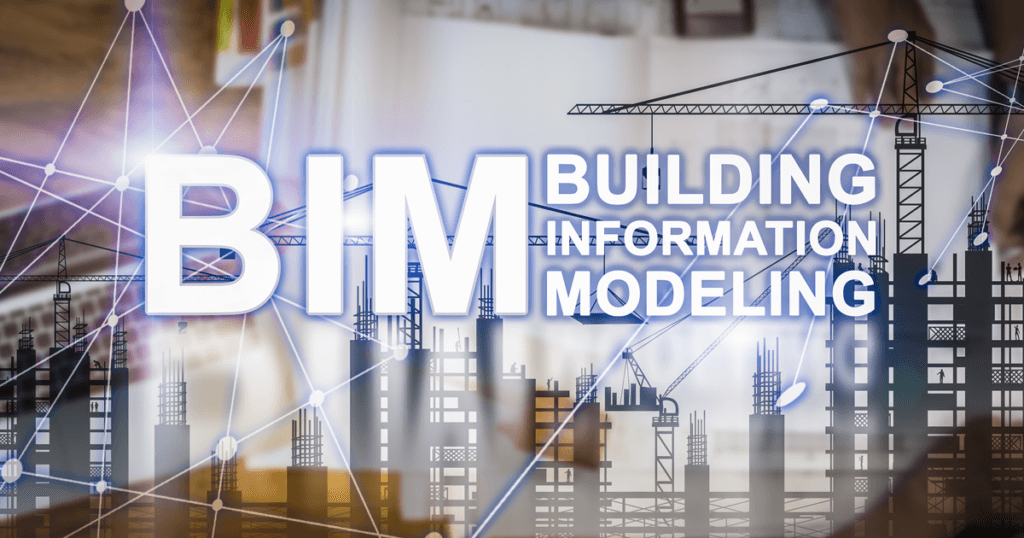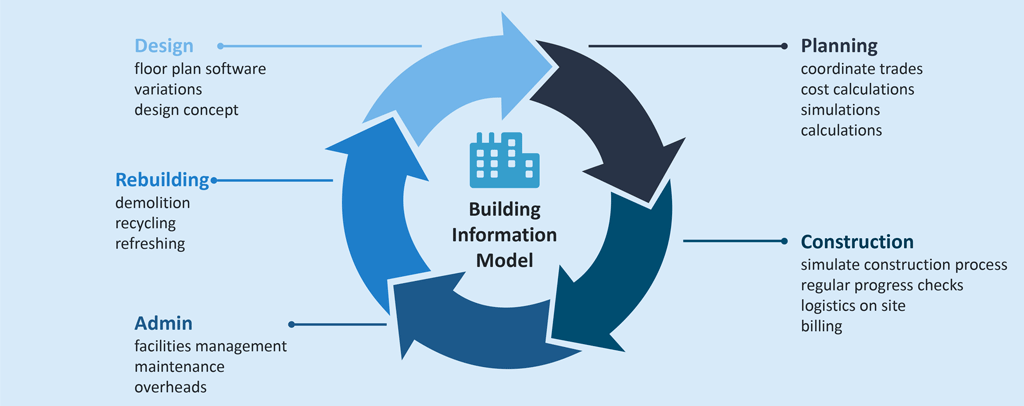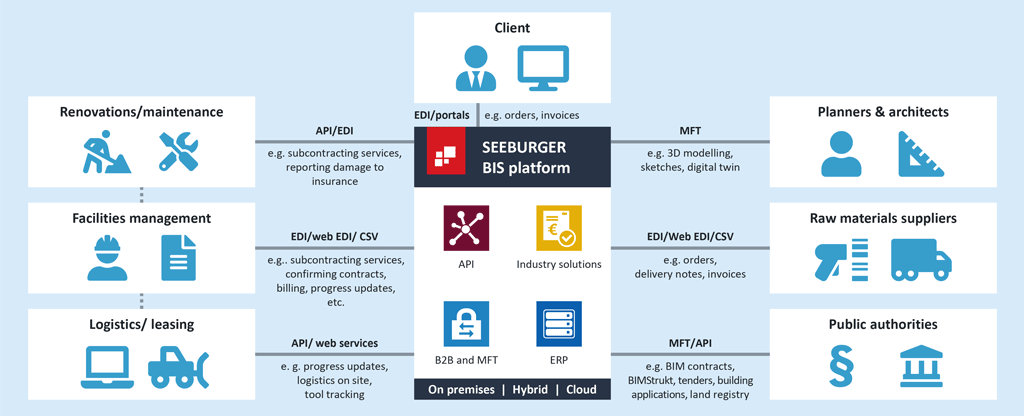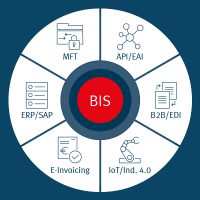Helping the Construction Industry go Digital with Building Information Modeling (BIM)

According to the Federal Ministry for Economic Affairs and Energy, the German construction industry was worth nearly 0.4 billion euros in 2020. Global construction is expected to grow by 85% by 2030[1]. This rapid growth is, however, going to pose challenges to the building trade. While 3D modelling, real time inventory checks with suppliers and secure digital data exchange is pretty standard these days, technologies such as tool tracking, augemented reality and IoT are only just making inroads in the industry. Since last year, the Federal Ministry of Traffic and Digital Infrastructure has required to be used in new planning projects. At this point at the latest, it should have been clear to all that the need for digitalisation in the construction industry was only going to increase.
What is BIM (Building Information Modeling)?
BIM describes the networked planning, construction and management of buildings and other structures with the aid of software. All digital systems related to the the construction and management of buildings or other structures (e.g. logistics, material lists for purchasing, or scheduling) are modelled and networked through interfaces. Hence the name, Building Information Modeling. If, for example, a door or window needs widening during the construction planning phase, this is passed to a digital model via an interface. The change is modelled and the materials required are automatically calculated and priced in real time.
Challenges in the digital transformation of the construction industry –jungles vs islands
There are so many interfaces inside and outside a construction company. There are interfaces between machines, between humans and machines, and also to suppliers, leasing partners and tradespeople. All these partners and machines, as well as the systems behind them need to be clearly mapped and networked. So many different types of data formats and communication channels need to be joined together with intelligent software so that there is a high degree of transparency for the organisation and its contractors. Construction can only be made efficient once everyone is connected. At every stage of the process.

Generally, a construction project consists of dozens of individual steps carried out by several independent contractors in a construction project. Connecting these steps is often tricky as contractors use their own inhouse, standalone systems. These little islands, cut off from the main systems, make it difficult to get the full picture when considering an overall strategy or business approach. Only once the individual IT landscapes have been intelligently networked will it be possible to benefit from the valuable data they contain, and drive the digital transformation of the contstruction industry.

Digitalising construction management with BIM – advantages through networking and interface management
Business integration solutions are technology which ensure that the right data is at the right place at the right time. Intelligently networking your existing systems combined with professional interface management makes communication easier between all those involved in the construction process:
- As standalone systems can now communicate with each other, BIM can, for example, send data on materials needed for purchasing and machine scheduling to the ERP.
- You can define subcontracted services with plans, calculations, material specifics and timelines.
- You can keep track of internal and external processes from start to finish with e.g. up-to-date information on construction progress and client documentation.
- You can simplify and improve your business relationships. Contracts and other documents can be simply and securely exchanged digitally.
- You can save time and money when getting business partners on board.
- Materials suppliers can be given dedicated delivery slots thanks to transparent scheduling.
- Master data is automatically updated by, for example, comparing and harmonizing stock levels from companies in the building materials industry by intelligently networking their inhouse systems.
- You can accelerate your processes and improve your quality. Administration time and costs are reduced for all with digital client and supplier management using standardised, harmonised interfaces.
Digitalising the construction industry– with reliable, professional and secure integration solutions from SEEBURGER
Simple yet secure interface management is the key to the successful digital transformation of the construction industry. The SEEBURGER Business Integration Suite (BIS) is a central platform which offers a multitude of connectors, mappings, API and API management solutions, as well as an efficient onboarding service for your business partners. Data is drawn from various sources by a central integration management tool and made available for your needs. Simply and securely.
[1] https://www.bmwi.de/Redaktion/DE/Artikel/Branchenfokus/Industrie/branchenfokus-bauwirtschaft.html (German)
[2] Image adapted from“Building Information Modeling” André Borrmann, Markus König, Christian Koch, Jakob Beetz, Springer Verlag, 2015 (German)
Thank you for your message
We appreciate your interest in SEEBURGER
Get in contact with us:
Please enter details about your project in the message section so we can direct your inquiry to the right consultant.
Written by: Simon Bolta
Simon Bolta has been working for SEEBURGER as sales manager for healthcare and government since 2017. His focus is on advising customers on how to digitalize their processes. Whether electronic invoicing, secure data traffic or connecting suppliers he develops a solution by listening to his customers and considering what they need, always with the aim of exploiting the latest possibilities for their business. In doing so, he attaches great importance experience he has gained from prior customer projects. After working in the automotive industry, Simon Bolta went on to work in financial services. After that, he was employed in software sales for several years, where he found ‘his’ industry. In his spare time, he is involved in charity work through a service organisation and enjoys going skiing in the winter.





